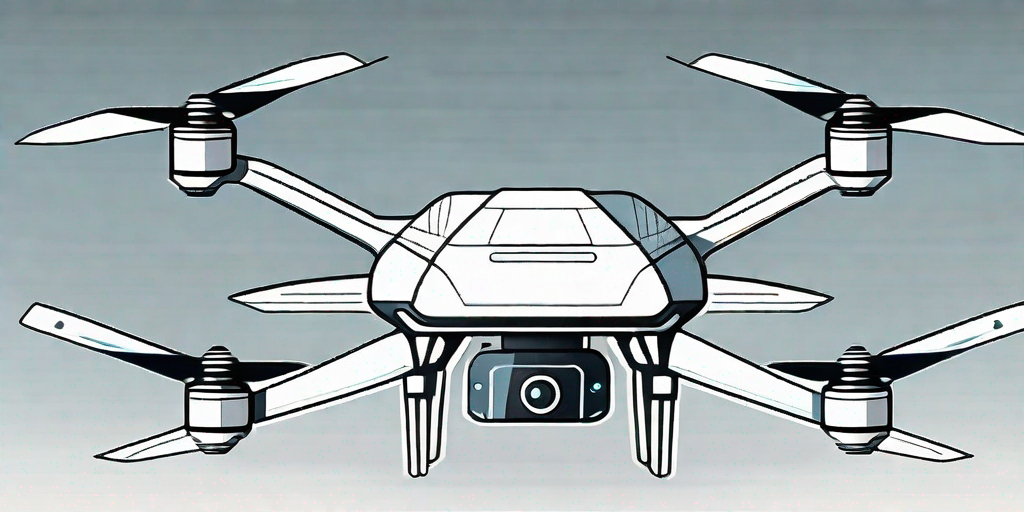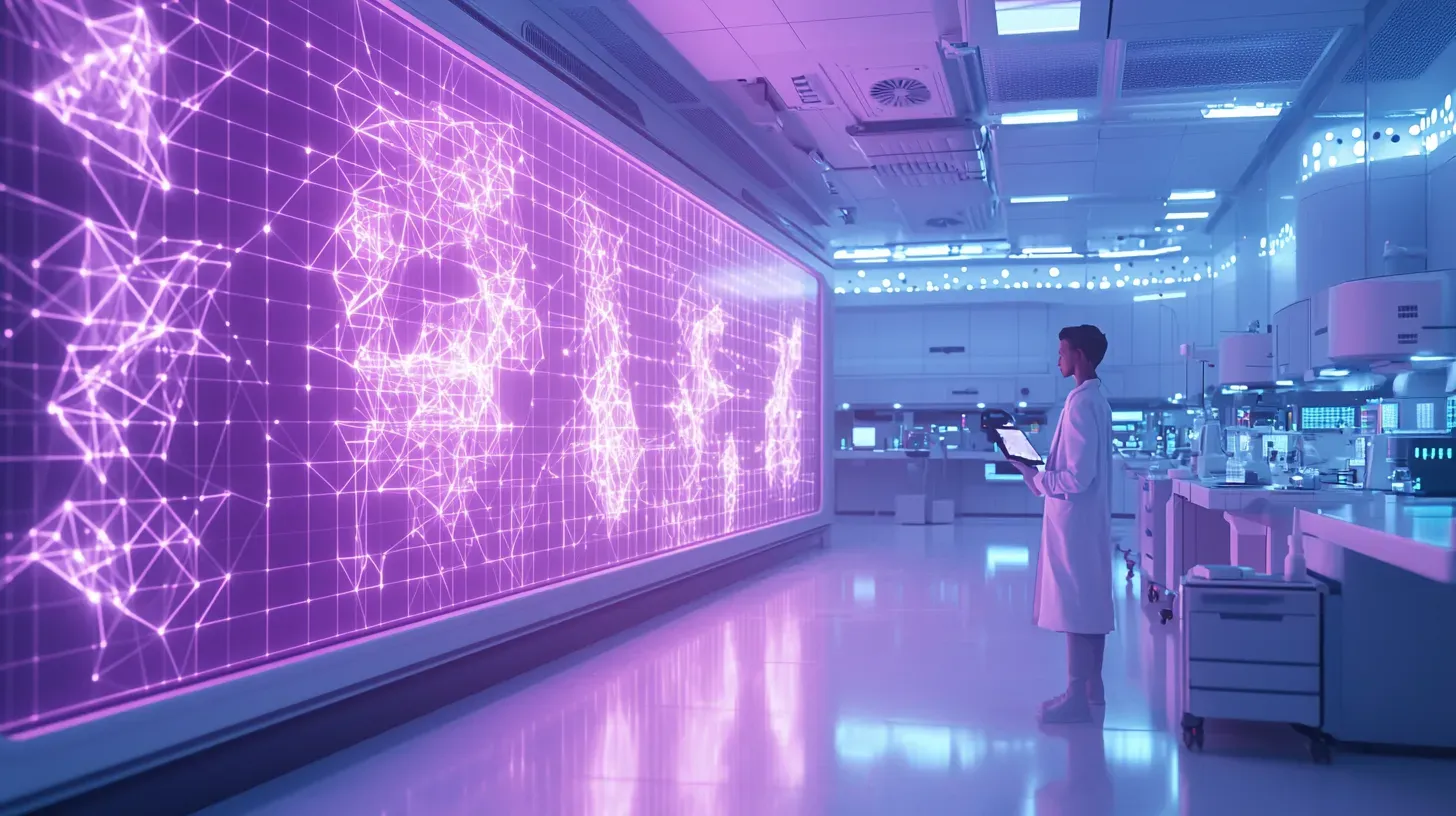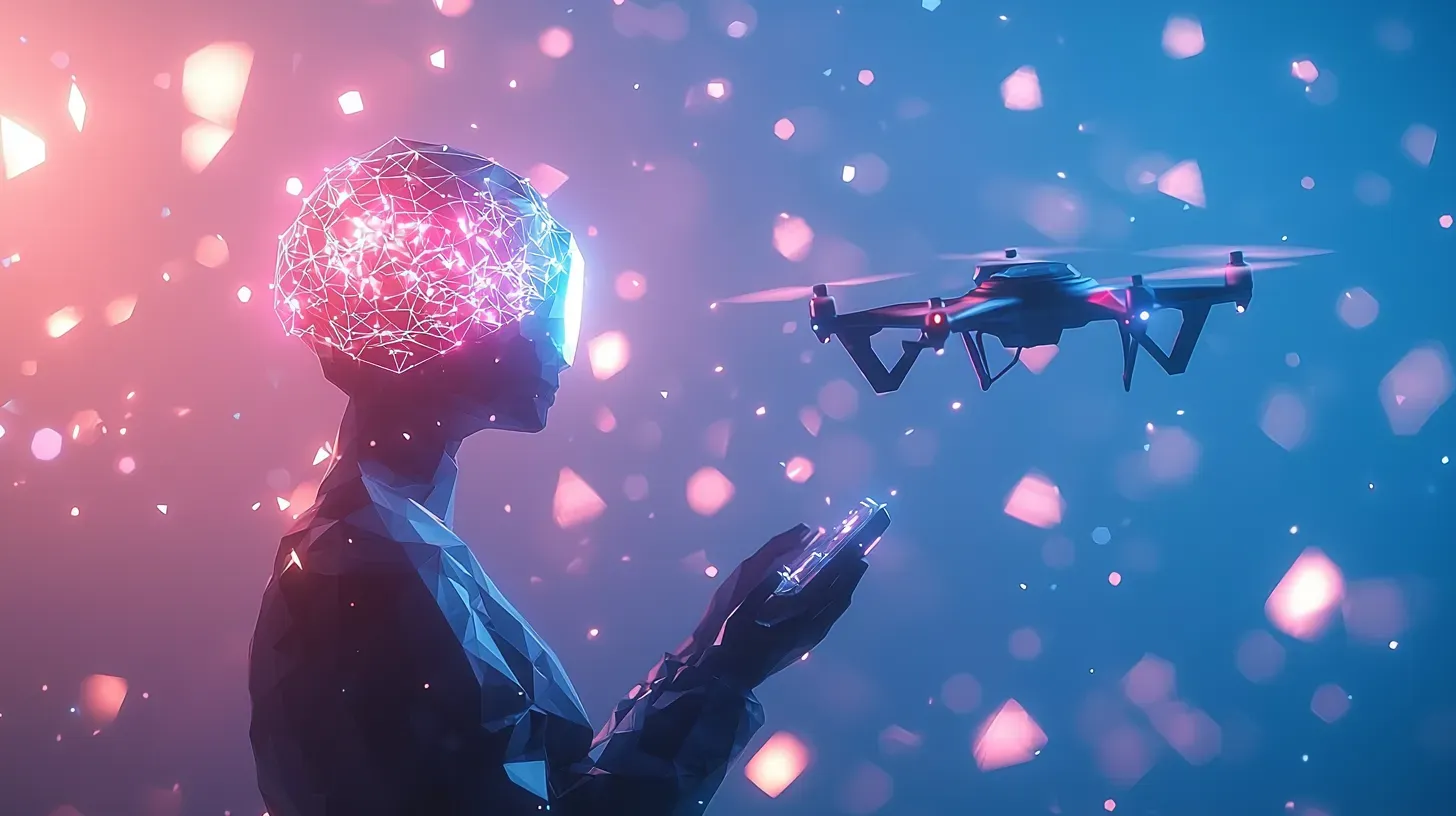Understanding Drones with Help from a Futurist Keynote Speaker

Understanding Drones with Help from a Futurist Keynote Speaker
Drones are no longer just the stuff of science fiction movies; they have become a reality in our world today. These unmanned aerial vehicles have captured our imagination and are transforming industries across the board. But what exactly is the role of drones in the future? And how can we make sense of their impact on various sectors? To shed light on these questions, we turn to a futurist keynote speaker who is at the forefront of deciphering drone technology and envisioning its potential.
Understanding the Role of Drones in the Future
In order to understand the role of drones in the future, we need to look beyond their current applications and envision what lies ahead. Drones are not just tools for aerial photography or package delivery; they have the potential to revolutionize industries such as agriculture, transportation, and healthcare.
Let's delve deeper into the agricultural sector. Drones can be equipped with advanced sensors and cameras that can monitor crop health with incredible precision. These sensors can detect early signs of diseases or nutrient deficiencies, allowing farmers to take proactive measures to protect their crops. Additionally, drones can be programmed to apply fertilizers or pesticides precisely where they are needed, minimizing waste and maximizing efficiency. This level of precision and automation has the potential to increase crop yields and reduce the environmental impact of traditional farming methods.
Now, let's shift our focus to the transportation industry. Drones have the potential to transform logistics as we know it. Imagine a world where packages are delivered to your doorstep within minutes, thanks to the speed and agility of drones. With the ability to navigate through congested urban areas and bypass traffic, drones can revolutionize last-mile delivery. This not only saves time and money but also reduces carbon emissions associated with traditional delivery methods. Furthermore, drones can be used for surveillance and monitoring of transportation infrastructure, ensuring the safety and efficiency of our roads, railways, and airports.
Lastly, let's explore the healthcare sector. Drones can be equipped with medical supplies and used for emergency response in remote areas. In regions with limited access to healthcare facilities, drones can deliver life-saving medications, vaccines, or even organs for transplantation. This can significantly improve healthcare outcomes and save countless lives. Additionally, drones can be used for aerial surveillance during natural disasters or disease outbreaks, providing valuable data to aid in disaster response and containment efforts.
By harnessing the power of artificial intelligence, drones can become more intelligent and autonomous. They can learn from their surroundings, adapt to changing environments, and make decisions in real-time. This opens up a whole new realm of possibilities for the future of drones. For example, drones can be programmed to autonomously inspect and maintain critical infrastructure such as bridges, power lines, or oil rigs. This not only reduces the risk to human workers but also ensures the safety and reliability of these vital systems.
In conclusion, the future of drones is incredibly promising. With their ability to revolutionize industries such as agriculture, transportation, and healthcare, drones have the potential to improve efficiency, save lives, and protect the environment. As technology continues to advance, we can expect drones to become even more intelligent, autonomous, and integrated into our daily lives. The possibilities are endless, and the future is bright for these remarkable flying machines.
How a Futurist Keynote Speaker Deciphers Drone Technology
Deciphering drone technology requires a deep understanding of engineering, computer science, and future trends. A futurist keynote speaker, with their expertise in emerging technologies, is uniquely positioned to make sense of the ever-evolving world of drones. By staying abreast of the latest advancements and analyzing their implications, they can provide valuable insights into how drones will shape our future.
When it comes to engineering, a futurist keynote speaker can delve into the intricate details of drone design and functionality. They can explain the various components that make up a drone, such as the motors, propellers, and flight controllers. With their technical knowledge, they can discuss the advancements in drone engineering, from improved battery life to enhanced stability and maneuverability.
Moreover, a futurist keynote speaker can shed light on the cutting-edge developments in computer science that are revolutionizing the drone industry. They can explore topics like artificial intelligence and machine learning, which are enabling drones to perform complex tasks autonomously. From autonomous navigation to object recognition, these advancements are paving the way for drones to be used in various industries, including delivery services, agriculture, and search and rescue operations.
However, deciphering drone technology goes beyond the technical aspects. A futurist keynote speaker can help us navigate the ethical and policy implications of drone technology. As drones become more integrated into our daily lives, it is crucial to address issues such as privacy, security, and safety. A futurist keynote speaker can spark important discussions and influence policymakers to create responsible regulations.
For instance, they can delve into the privacy concerns surrounding drones equipped with high-resolution cameras. They can explore the potential risks of unauthorized surveillance and the need for strict regulations to protect individuals' privacy rights. Additionally, they can discuss the importance of cybersecurity measures to prevent unauthorized access to drones and potential threats to critical infrastructure.
Furthermore, a futurist keynote speaker can highlight the safety considerations associated with drone technology. They can discuss the importance of implementing robust safety features, such as collision avoidance systems and geofencing, to prevent accidents and ensure the responsible use of drones. By emphasizing the need for proper training and certification for drone operators, they can contribute to a safer and more regulated drone ecosystem.
In conclusion, a futurist keynote speaker plays a vital role in deciphering drone technology. Their expertise in engineering, computer science, and future trends allows them to provide valuable insights into the ever-evolving world of drones. Moreover, they can help us navigate the ethical and policy implications, ensuring that drones are integrated into our society in a responsible and beneficial manner.
The Impact of Drones on Various Industries
The impact of drones on various industries cannot be overstated. In agriculture, drones have the potential to increase crop yields, reduce the use of pesticides, and improve overall efficiency. By providing farmers with real-time data on crop health, water usage, and soil conditions, drones can empower them to make informed decisions and optimize their operations.
Imagine a farmer standing in the middle of a vast field, equipped with a tablet that displays a live aerial view of the crops. With just a few taps, the farmer can zoom in on specific areas and identify any signs of distress or disease. Drones equipped with advanced sensors can detect subtle changes in plant color, temperature, and moisture levels, providing valuable insights into crop health. Armed with this information, farmers can take immediate action, such as adjusting irrigation systems or applying targeted treatments, to ensure optimal growth and minimize crop loss.
Furthermore, drones can also assist in precision agriculture by creating detailed maps of fields, identifying areas that require additional fertilization or attention. This targeted approach not only reduces the use of pesticides and fertilizers but also minimizes the environmental impact of agricultural practices. With drones, farmers can achieve a delicate balance between productivity and sustainability.
In the transportation sector, drones have the potential to revolutionize the delivery process. Companies like Amazon are already testing drone delivery services, which promise to make deliveries faster and more convenient. Drones can navigate through traffic, avoid congestion, and reach remote areas that are difficult to access by traditional means.
Imagine a bustling city with congested streets and busy intersections. Traditional delivery vehicles struggle to navigate through the chaos, causing delays and frustration. However, with drones, packages can be swiftly transported through the air, bypassing the gridlock below. This not only saves time but also reduces carbon emissions, contributing to a greener and more sustainable future.
Moreover, drones can reach remote areas that are otherwise challenging to access. Think of rural communities or isolated islands where traditional delivery services are limited. Drones can fly over mountains, rivers, and forests, delivering essential goods and supplies to those in need. Whether it's medical supplies, food, or other necessities, drones can bridge the gap and ensure that no one is left behind.
In the healthcare industry, drones can play a crucial role in emergency response and medical supply delivery. In disaster-stricken areas or remote communities with limited access to healthcare facilities, drones can deliver life-saving medical supplies and provide immediate assistance. This can make a significant difference in saving lives and improving healthcare outcomes.
Imagine a natural disaster has struck, leaving a community devastated and cut off from the outside world. Traditional means of transportation are disrupted, making it difficult for medical personnel to reach those in need. However, drones can swiftly fly over the affected area, delivering medical supplies, such as bandages, medicines, and even defibrillators. These drones can also be equipped with cameras and communication devices, allowing doctors to remotely assess the situation and provide guidance to local healthcare providers.
Furthermore, in remote communities with limited access to healthcare facilities, drones can provide a lifeline. For example, imagine a small village located in a remote mountainous region. The nearest hospital is hours away, and residents often struggle to receive timely medical attention. However, with drones, medical professionals can remotely monitor patients, provide telemedicine consultations, and even deliver essential medications. This not only improves healthcare outcomes but also enhances the quality of life for those living in underserved areas.
In conclusion, drones have the potential to revolutionize various industries, from agriculture to transportation and healthcare. By harnessing the power of aerial technology, we can unlock new possibilities and overcome the limitations of traditional methods. The future is bright, and drones are leading the way towards a more efficient, sustainable, and connected world.
Insights from a Futurist Keynote Speaker on Drone Policy and Ethics
With the rapid advancement of drone technology, it is imperative to address policy and ethical considerations. A futurist keynote speaker can provide valuable insights into these complex issues and guide us towards responsible practices. They can help us strike a balance between innovation and safeguarding privacy, ensuring that drones are used for the benefit of society while respecting individual rights.
Moreover, a futurist keynote speaker can help us navigate the ethical dilemmas posed by drones. For example, should drones be used for surveillance purposes? How can we address concerns of data privacy and security? These are important questions that need to be discussed openly and transparently.
Preparing for a Future Dominated by Drones
As drones continue to evolve and shape our future, it is essential that we prepare ourselves for a world in which they play a significant role. This involves not only staying informed about the latest advancements but also embracing the opportunities that drones offer.
Education and training will be vital in preparing the workforce for the drone-dominated future. By equipping individuals with the necessary skills to operate and manage drones, we can ensure that they are integrated effectively into various industries. Additionally, collaboration between academia, industry, and government will be crucial in shaping policies and regulations that foster responsible drone usage.
In Conclusion
Understanding drones and their impact on our future requires insight from a futurist keynote speaker who can decipher the technology, explore its potential applications, and guide us towards responsible practices. By embracing their insights, we can fully comprehend the role of drones in various industries and prepare for a future where they become an integral part of our daily lives.
FAQ
1. What are the potential applications of drones in the agricultural sector?
Drones can be equipped with advanced sensors and cameras to monitor crop health, detect diseases or nutrient deficiencies, and apply fertilizers or pesticides precisely where needed. This precision and automation can increase crop yields and reduce the environmental impact of traditional farming methods.
2. How can drones revolutionize the transportation industry?
Drones have the potential to transform logistics by enabling faster and more efficient delivery services. They can navigate through congested urban areas, bypass traffic, and reach remote locations, making last-mile delivery faster and more convenient. This not only saves time and money but also reduces carbon emissions associated with traditional delivery methods.
3. What role can drones play in the healthcare sector?
Drones can be used for emergency response in remote areas, delivering life-saving medications, vaccines, or organs for transplantation. They can also provide aerial surveillance during natural disasters or disease outbreaks, providing valuable data for disaster response and containment efforts. Drones have the potential to improve healthcare outcomes and save lives in regions with limited access to healthcare facilities.
Contact a Futurist Keynote Speaker for Your Event
Ready to dive deeper into the future of drones and the transformative potential they hold for various industries? Why not consider hiring Dr Mark van Rijmenam for your next event? As a seasoned Futurist Keynote Speaker, Dr van Rijmenam is uniquely positioned to offer profound insights into the ever-evolving world of drone technology, its implications for the future, and the ethical and policy considerations that come with it. His engaging presentations will not only enlighten your audience but also spark dynamic discussions around the responsible and beneficial integration of drones into our daily lives. Complete the form below, and we'll be in touch within 24 hours to discuss how Dr van Rijmenam can make your event a memorable one.
Thanks for your inquiry
We have sent you a copy of your request and we will be in touch within 24 hours on business days.
If you do not receive an email from us by then, please check your spam mailbox and whitelist email addresses from @thedigitalspeaker.com.
In the meantime, feel free to learn more about The Digital Speaker here.
Or read The Digital Speaker's latest articles here.





